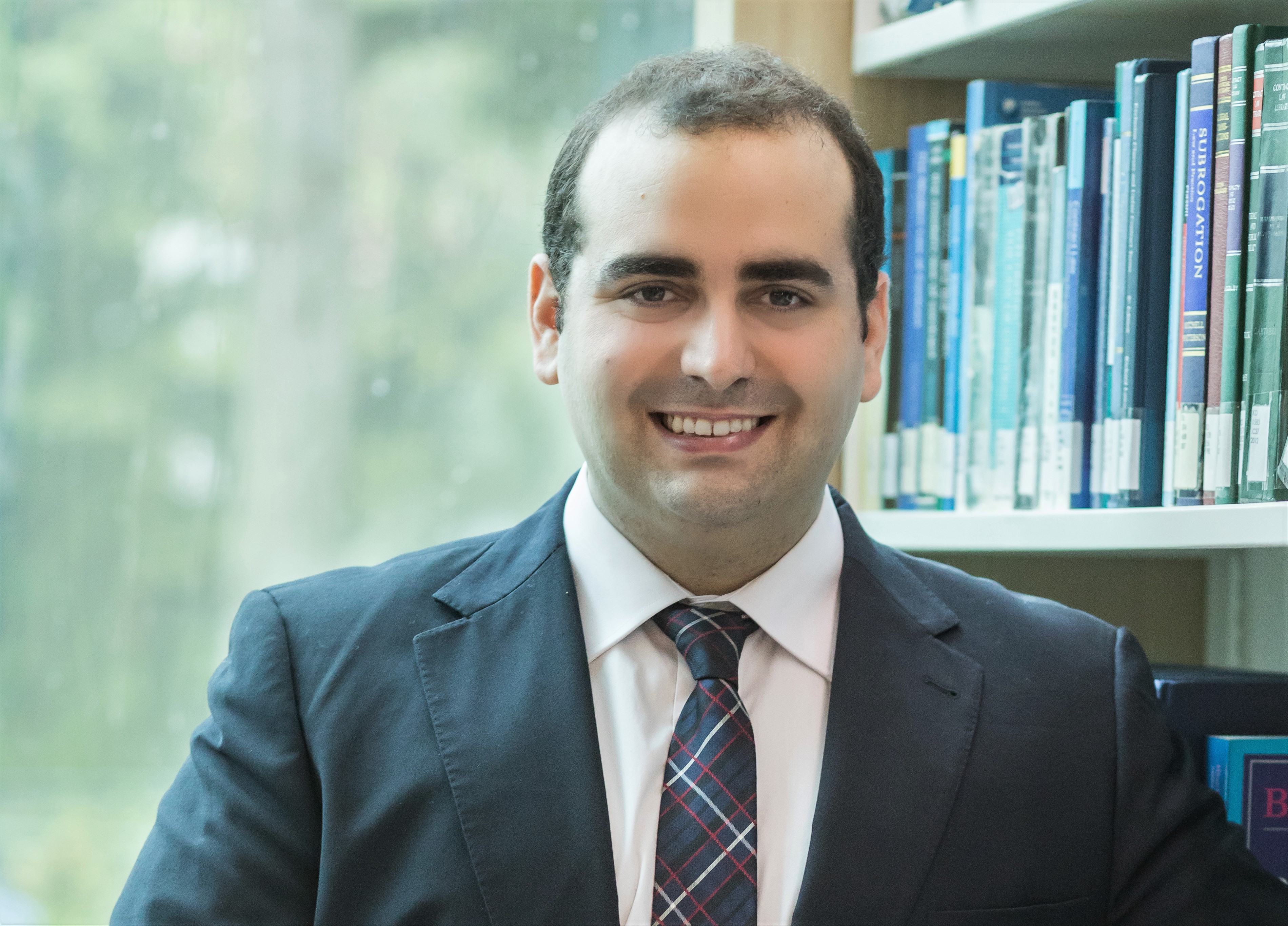
By Michelle Lee Twan Gee
SMU Office of Research & Tech Transfer – Big or small, businesses across the world are threatening to topple in the hurricane that is COVID-19.
Hin Leong Trading, one of Singapore's largest independent oil traders, has initiated an insolvency proceeding after global oil prices collapsed due to the pandemic. In the U.S., giants like oil and gas drillers Whiting Petroleum and Diamond Offshore and major retailers J.Crew, Brooks Brothers and GNC have also folded in the aftermath of the pandemic.
This upending of the global economy has, in turn, put the spotlight on how insolvency systems can help businesses stay afloat until economic downturns pass.
Right on cue, the Singapore Ministry of Law awarded Singapore Management University (SMU) a grant to launch the Singapore Global Restructuring Initiative (SGRI) on 1 May to conduct research into restructuring and insolvency laws across the world.
Assistant Professor of Law Aurelio Gurrea-Martínez and his team are currently working on several cutting-edge research projects in restructuring and insolvency laws. Notably, some of them explore how insolvency laws can be used to minimise the economic effects of the COVID-19 crisis.
Though the Initiative was given the go-ahead before the pandemic and the grant is not linked in any way to COVID-19, Professor Gurrea-Martínez acknowledges that the SGRI will start working in a time where research on corporate insolvency is more important than ever.
He explains: “Even though we were not foreseeing the current situation when we thought about launching the Initiative, our project is expected to help regulators and policymakers better address some of the economic and legal changes brought about by the current pandemic. For that purpose, we are analysing how corporate insolvency law and out of court restructurings can support businesses affected by COVID-19.”
How a good insolvency regime makes a difference
Corporate insolvency law plays a key role in society, points out Professor Gurrea-Martínez. A well-functioning corporate insolvency framework facilitates entrepreneurship, innovation and access to finance. It also contributes to other important goals for the real economy, including the reorganisation of viable companies facing financial trouble, the liquidation of non-viable businesses in a fair and efficient manner, and the maximisation of the recoveries to the creditors affected by a situation of insolvency.
When a viable firm is reorganised, all stakeholders benefit. Creditors can recover more, employees keep their jobs and suppliers and customers do not lose out. Besides, if lenders know that they can maximize their recoveries, they will be more willing to extend credit in the first place. Therefore, corporate insolvency law can facilitate firms’ access to debt finance. As a result, more companies will be able to obtain the financial resources needed to pursue investment projects that can ultimately generate jobs and wealth.
“Therefore conducting research in corporate insolvency is essential for the promotion of economic growth. And this is the primary mission of the Singapore Global Restructuring Initiative.”
Significance of the Singapore Global Restructuring Initiative
The SGRI was launched with the purpose of promoting cooperation and cutting-edge research on corporate insolvency. Furthermore, several factors make this research particularly needed in Singapore.
The first is the need to get a better handle on Singapore’s new insolvency and restructuring framework. In the past years, Singapore has implemented a major overhaul of its corporate debt restructuring framework. Groundbreaking changes were made to the rules governing schemes of arrangement, judicial management, and cross-border insolvency. New features, such as super-priority rescue financing, cram-down powers, and pre-packaged restructuring plans, were introduced. The reforms implemented were intended to enhance Singapore’s attractiveness as an international hub for debt restructuring. Professor Gurrea-Martínez points out: “In order to get a better understanding of the new principles and provisions included in these reforms, it is important to conduct research and promote cooperation between academics, judges, practitioners and policymakers.”
The second reason is to contribute to Singapore’s restructuring ecosystem. Developing a restructuring ecosystem is an important step to strengthen a country’s profile as an international hub for debt restructuring, Professor Gurrea-Martínez says. While Singapore has a sophisticated judiciary and a qualified industry of insolvency professionals, more research and cooperation between academics, practitioners and other actors is needed to keep building our burgeoning restructuring ecosystem.
Finally, the project also seeks to play a significant role in the academic and policy debate in Asia and other parts of the world. Therefore, hopefully the SGRI can contribute to the improvement of insolvency laws and practices in other jurisdictions while increasing Singapore’s voice in the international debate on corporate insolvency law.
An intense scrutiny of insolvency laws and a global caucus of stakeholders
One of the team’s first projects involves analysing how insolvency laws can save viable businesses affected by COVID-19 and how countries should temporarily amend their insolvency and restructuring frameworks during this pandemic.
The team also collaborated with the World Bank and the International Association of Restructuring, Insolvency & Bankruptcy Professionals (INSOL) to conduct projects dealing with insolvency laws in times of COVID-19. One project, for example, co-authored by Professor Gurrea-Martínez, seeks to provide an overview of the insolvency reforms taking place around the world as a response to the COVID-19 crisis.
Another project currently conducted by the SGRI deals with insolvency laws in emerging countries. “The laws in many emerging countries are still very unattractive for debtors, creditors or both. The insolvency system often does more harm than good for all the relevant parties involved in a situation of insolvency. This can become a barrier to entrepreneurship, innovation, access to finance and economic growth in those countries,” Professor Gurrea-Martínez says.
Moreover, many of these economies do not have efficient institutions and sophisticated market environments. Professor Gurrea-Martínez suggests for corporate insolvency law to be designed in a totally different way for emerging countries.
In the ongoing project, he is proposing that pre-insolvency procedures and out-of-court restructuring should be promoted to avoid an insolvency system that is usually unattractive for both debtors and creditors. He also suggests the design of insolvency proceedings in emerging markets should be reformed to respond more effectively to the features of these countries, which generally include inefficient courts, unattractive insolvency laws, unsophisticated insolvency practitioners, and the prevalence of small companies and large controlled firms.
“We are incredibly excited about the launch of the Singapore Global Restructuring Initiative,” expresses Professor Gurrea-Martínez. “We believe that, by promoting cooperation and research in an area that can ultimately foster entrepreneurship and growth, our work can be relevant for society.”
Back to Research@SMU Aug 2020 Issue
See More News
Want to see more of SMU Research?
Sign up for Research@SMU e-newslettter to know more about our research and research-related events!
If you would like to remove yourself from all our mailing list, please visit https://eservices.smu.edu.sg/internet/DNC/Default.aspx

